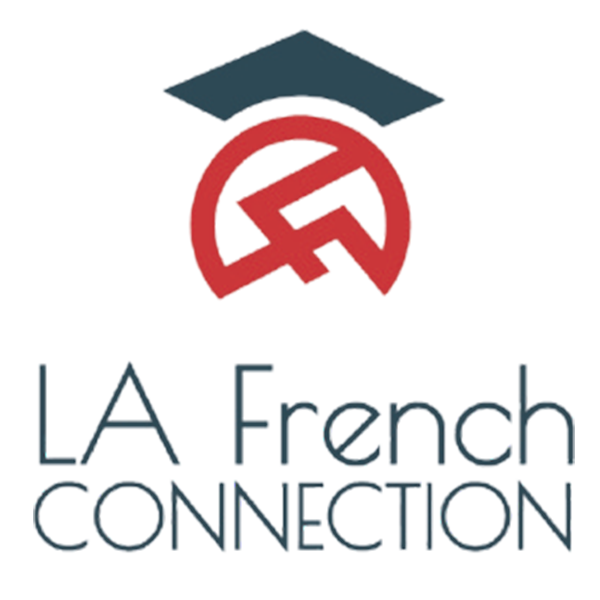TEF vs TCF for Canada Immigration

TEF vs TCF for Canada Immigration: Which French Exam Should You Take?
If you’re planning to immigrate to Canada, proving your French language skills through an approved test is essential. The two main options are the TEF Canada exam and the TCF Canada exam, both accepted by Immigration, Refugees and Citizenship Canada (IRCC). But which one should you choose?
This comprehensive guide will compare both exams in detail, helping you decide the best option for your Canadian immigration goals. We’ll cover:
- Key differences between TEF Canada and TCF Canada
- Which test gives you +50 PR points in Express Entry
- How to crack TCF/TEF with the right preparation
- Career benefits of French proficiency in India and globally
- Academic advantages for students planning to study abroad
By the end, you’ll have a clear understanding of which exam aligns best with your immigration timeline, French level, and personal goals.
Understanding TEF Canada and TCF Canada
Both the TEF Canada and TCF Canada are official French proficiency tests approved by IRCC for Canadian immigration. They assess four language skills: Listening, Speaking, Reading, and Writing.
However, there are some key differences:
1. Test Structure & Question Types
- TEF Canada includes more real-life scenarios, such as writing formal emails or discussing everyday situations.
- TCF Canada follows a multiple-choice format for reading and listening, making it slightly more structured.
2. Scoring System
- TEF Canada uses a point-based system (0-900) converted to Canadian Language Benchmark (CLB) levels.
- TCF Canada provides a score out of 699, also mapped to CLB levels.
3. Difficulty & Pass Rates
- Many test-takers find TCF Canada slightly easier due to its standardized format.
- TEF Canada includes more open-ended writing and speaking tasks, requiring stronger fluency.
4. Availability & Cost
- TEF Canada is more widely available internationally.
- TCF Canada may have fewer test dates, but it is often cheaper.
Which one should you take?
- If you prefer structured multiple-choice questions → TCF Canada
- If you’re comfortable with open-ended writing/speaking → TEF Canada
- If you need faster results → TCF Canada (results in 4 weeks vs. TEF’s 6 weeks)

Which Test Gives You +50 PR Points in Express Entry?
Both TEF Canada and TCF Canada can help you earn +50 additional CRS points in Express Entry if you achieve CLB 7 in French + CLB 5 in English (IELTS/CELPIP).
Here’s how the scoring works:
- CLB 5 in French → +25 CRS points
- CLB 7 in French → +50 CRS points (maximum bonus)
- CLB 9+ in French → Additional points for language proficiency
Pro Tip: If you already have strong English scores, adding French can push your CRS score into the ITA (Invitation to Apply) range much faster.
How to Crack TCF/TEF Canada: Best Preparation Strategies
Whether you choose TEF Canada or TCF Canada, a solid preparation strategy is key. Here’s how to maximize your score:
1. Take a Diagnostic Test First
Before diving into preparation, assess your current level with a free online TCF/TEF practice test. This helps identify weak areas (e.g., listening, grammar, vocabulary).
2. Use Official Study Materials
- For TEF Canada: “Réussir le TEF” (by Hachette)
- For TCF Canada: “TCF 250 Activités” (by CLE International)
- Online Platforms: TV5Monde, RFI Français Facile
3. Focus on Quebec French (If Taking TEF Canada)
Since TEF Canada includes Quebec accents, listen to Radio-Canada or watch Quebecois shows like “District 31” to get familiar.
4. Take Full-Length Mock Tests
Simulate real exam conditions at least 3-4 times before the actual test. This improves time management and reduces anxiety.
5. Join a Study Group or Hire a Tutor
If self-study isn’t enough, consider Alliance Française courses or a private tutor specializing in TEF/TCF prep.
How Learning French Can Land You High-Paying Jobs in India & Overseas
French isn’t just for immigration, it’s a valuable career asset in India and globally. Here’s why:
1. High-Paying Jobs in India
- Customer Service (BPO/KPO): Companies like Teleperformance, Accenture, and Amazon pay 30-50% more for French-speaking agents.
- Luxury Retail: Brands like Louis Vuitton, Chanel, and Dior prefer bilingual staff in Indian stores.
- Tourism & Hospitality: Five-star hotels like Taj and Oberoi offer premium salaries to French-speaking staff.
2. Global Career Opportunities
- Canada: Bilingual employees earn 10-15% higher salaries in cities like Montreal.
- France: The Talent Passport Visa fast-tracks work permits for skilled French speakers.
- Switzerland & Belgium: French fluency opens doors to high-paying finance and tech jobs.
Did You Know?
Many Indian professionals use TEF/TCF scores to apply for jobs in Canada and France before even immigrating!
How French Supports Academic Goals (Especially for UK-Bound Students)
If you’re a student planning to study abroad, French can be a game-changer for admissions and scholarships.
1. Easier Admissions to Canadian Universities
- Quebec universities (McGill, Université de Montréal) offer lower tuition fees for French speakers.
- Some programs prioritize bilingual students in admissions.
2. UK Universities Value French Proficiency
- Oxford & Cambridge consider second languages in applications.
- LSE (London School of Economics) offers French pathway programs.
- Many UK schools accept DELF B2 as proof of language skills.
3. Scholarships for French Speakers
- Eiffel Excellence Scholarship (France) – Covers tuition + living costs.
- Vanier Canada Graduate Scholarships – For French-speaking researchers.
- Wallonia-Brussels Grants (Belgium) – For master’s/PhD students.
If you’re still unsure:
- Take a free TCF/TEF practice test to see which format suits you better.
- Check test center availability in your city.
Conclusion: Start Preparing Today!
Whether you choose TEF Canada or TCF Canada, both exams can help you:
- Gain +50 CRS points for Express Entry
- Access high-paying jobs in India and abroad
- Boost academic opportunities in Canada, the UK, and Europe
The key is to start preparing early, use authentic study materials, and take multiple mock tests.
Ready to begin? Contact us now or download our free TEF/TCF study planner and take the first step toward your Canadian dreams today.
FAQs
- Which test is easier: TEF Canada or TCF Canada?
TCF Canada is generally considered easier due to its multiple-choice format. TEF Canada requires more spontaneous writing/speaking. Choose TCF if you prefer structured tests; opt for TEF if you’re comfortable with open-ended responses. - How long are TEF and TCF scores valid for Canadian immigration?
Both test results remain valid for 2 years from your exam date. IRCC requires valid scores at both the application submission and processing stages. Plan your test timing accordingly with your immigration timeline. - Can I combine TEF/TCF with IELTS for maximum CRS points?
Yes! Achieving CLB 7 in French (TEF/TCF) plus CLB 5 in English (IELTS) grants +50 CRS points. This bilingual combination significantly boosts your Express Entry profile’s competitiveness. - Which test has faster results: TEF or TCF?
TCF Canada typically delivers results in 4 weeks, while TEF Canada takes about 6 weeks. If you’re on a tight immigration deadline, TCF may be the better choice for quicker results. - Do I need to learn Quebec French for these tests?
TEF Canada includes some Quebec French content (about 30% of listening sections). TCF focuses more on standard French. For TEF prep, practice with Radio-Canada to familiarize yourself with Quebec accents and vocabulary.
